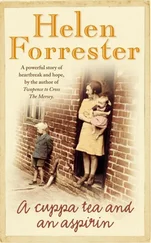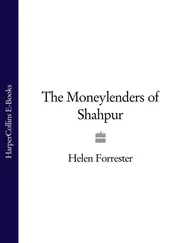‘I am kshatriya – warrior caste,’ answered Ajit. ‘That is the second caste.’
‘A very gentle warrior,’ I thought.
When our guest took his leave and Father was bolting the front door for the night, he said to me as I started to mount the staircase: ‘The first young man I have met for a long time who has both brains and manners. Got any more like him at your club?’ And he grinned a little wickedly.
‘Plenty,’ I said, blowing him a kiss, ‘of all shades.’
Upstairs Angela was hanging up her frock in the big wardrobe in my room. She said, without preamble: ‘He’s rather a pet, isn’t he?’
‘Who?’
‘Ajit Singh.’
I started to pull the hairpins out of my bun. ‘Yes,’ I said almost reluctantly, ‘I suppose he is.’
On the evening of Boxing Day I was on duty at the club to make sure that the few ladies who had no private invitations had something or someone to entertain them. As I went from one easy chair to another in the lounge, I found myself looking for Ajit Singh. The room was lit with coloured lights half hidden in evergreens. A German architect had amused himself by decorating the room and the result was a soft glow with an occasional sparkle of tinsel or silver balls. It would be easy to miss someone in such dim light, and I had just decided that he had not come, when a voice from a particularly dark corner said: ‘Hello.’
I jumped, the cushion I had been shaking up still held in one hand.
‘It is Singh.’
He was sitting cross-legged in a deep settee and was smoking his pipe.
I said: ‘Good evening. How are you?’
‘Very well. Can you sit with me – today everybody is out, and I think your work is not great.’
‘I haven’t much to do.’ I sat down beside him. He continued to smoke, saying nothing and looking reflectively at me.
‘Will you come to the University Ball with me on New Year’s Eve?’ he asked.
Before I could stop myself I had answered in the affirmative, and when I saw his face soften, I was glad I had said yes. I foresaw all kinds of complications arising from that simple ‘yes’, but his pleasure was unbounded and I did not regret it. He thanked me effusively and also added thanks for the previous day’s invitation.
I said we were glad to have him and then asked him about Indian Festivals, which subject kept up the conversation until Dr Wu came in with Madame Li and the conversation became general.
Ajit Singh did not dance well, but the University Ball was fun. I knew several people present and was amused to see their eyebrows shoot up as they noted my Indian escort.
I did not care. I was enjoying being made a fuss of by a man who liked to come and look at me on Saturdays and Sundays.
We were eating ice cream when a very tall Indian, with a very short redhead on his arm, came up to us and roared: ‘Ajit, old chap, introduce me.’
‘Miss Delaney, may I introduce to you Mr Chundabhai Patel-my friend.’
My hand was enveloped in an enormous brown one. Chundabhai was the biggest ugliest Indian I had ever seen, but I could not help liking him. Six feet six inches was topped by a bullet head, blessed with small, twinkling eyes. His hair was cut to within an inch of his head, like a dog’s coat. His suit was of a quality rarely available in England at that time, and his shirt was silk.
He pulled forward his lady friend. Her name was Sheila Ferguson and she was doing chemistry under the same Professor as Chundabhai. Her freckled nose wrinkled and she tossed her red hair, as she described the Professor’s despair over the work of both of them.
When they went away to dance, I asked Ajit who Chundabhai was.
‘He is a Banya, the son of a rich chemical manufacturer. Soon he will go home to Shahpur to work with his father.’
So I heard the name of Shahpur for the first time; but it was just the name of an Indian town, a name more easily pronounceable than many. I asked where it was and whether it was a big city.
‘It is one of the richest of Indian cities. It has many industries – cotton, metalware, chemicals – but it has little water as it lies at the juncture of three deserts.’
‘Is the Government trying to improve the water supply?’
‘Certainly it is. Further north there is a river which is being dammed. From it they will obtain power for Shahpur and with the power water will be pumped from new deep wells. One day perhaps there will be a better way of bringing water to Shahpur, but Government has much work to do – it cannot do it all at once.’ He grinned at me, and added: ‘The British did not expect to harvest much tax from the district round Shahpur, so they did not care about providing water for it.’
It was the first time I had heard him criticise the British régime in India. His usual attitude was to ignore the past and speak only of the future of his country. Other Indians sometimes said that the Germans or the French would have been worse taskmasters and would have made their struggle for freedom both longer and bloodier.
‘Don’t be too hard on my fellow countrymen,’ I said.
He thought he had hurt me and to comfort me he said immediately that India had much that was good to learn from England, and that India was indebted to many fine English administrators.
Chundabhai came back to the table. Sheila followed with two English friends of Ajit and Chundabhai, and the party became hilarious.
This was the first of many occasions that Ajit and I enjoyed together, sometimes with a group from the club, sometimes just the two of us. It was a peculiar relationship. Ajit never asked anything of me – he seemed just content to be with me; and I was grateful for his peaceful presence. Part of me cried out to be loved, but I could not imagine being loved by anyone but Barney – and Barney was dead.
Very occasionally Ajit came to our house for an hour or so on Sunday evening, when I was not on duty. Mother always made him stay to supper and he basked in the comfortable, domestic atmosphere. After one of these visits, as we walked down the path to the gate, he said to me rather wistfully: ‘You have a splendid home.’
‘I think you must have a nice one too,’ I said.
‘I have,’ he said absently, ‘but I cannot hope to provide for my wife what Father provided for Mother. Middle-class people in India do not have so much money in our days.’
‘It is the same in England,’ I said. ‘If Angela or I got married, we would probably start in a two-roomed flat.’
‘Would you?’ he asked eagerly.
‘Of course.’
He shook my hand and went through the gate. I leaned over it and watched him out of sight. I was troubled because I saw myself hurting yet another man by refusing his proposal.
But I flattered myself. No proposal came.
A year went by, a year full of contented work for me. I began to have friends all over the world. After our visitors had gone, they often wrote to members of the staff, inviting them to spend holidays in cities as far apart as Delhi and Santiago. The feeling that I could go to almost any large town in the world and find a friend there to make me welcome, gave me a confidence that I had not enjoyed before.
I met also many English people, who took an interest in the club’s activities, and I learned how hospitable they could be, rationed and servantless as they were. I sometimes accepted an invitation to tea myself, and Mother helped me to entertain in return. By this means the number of her acquaintances was enlarged, and she found new interests to replace the slackening demands made on her by her daughters.
It was after one of these tea parties, when we were washing up, that Mother said: ‘Are we going to have a marriage in the family, darling?’
Читать дальше












